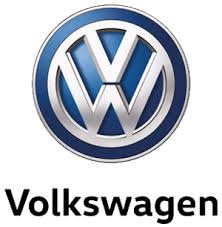
Volkswagen is seeking to leave the emission scandal behind and move ahead in the second largest auto market in the world – the United States, and revive sales there, and launched a new version of its Jetta compact car which has been its largest seller in the market at the Detroit Auto Show.
$30 billion in fines and costs have already been paid by the largest automaker in the world in relation to numerous cases all over the world after the company acknowledge fudging the diesel emission norms in its cars with the help of an emission software and cheated government emissions tests. The company is still enduring with investigations and lawsuits.
But the damage seems to have been managed somewhat with customers. According to media reports, more than 6 million cars were sold in 2017 by the company worldwide under the Volkswagen brand.
“Some of our critics thought the diesel crisis would block our view. Instead we have, undeterred by the crisis or rather fired by it, developed our digitization and electrification strategy,” Audi CEO Rupert Stadler, a member of VW’s executive board, told reporters on Dec. 11.
Even though customers in the U.S. have shifted away from small cars – the mainstay of the brand, there had been a rise of 5.2 per cent in the sale of VW in 2017 there.
“We’re back,” Hinrich Woebcken, the new head of the Volkswagen brand in North America, told reporters on the sidelines of the Los Angeles auto show in November.
There has been a wave of decentralization at VW from its Wolfsburg, Germany headquarters, by the top management of the automaker and the reins have been loosed as the company had a perception that the scandal happened due to from its Wolfsburg, Germany headquarters.
For example, the original name for an SUV that the company was planning to launch in America would not work, the U.S. managers had concluded, German native Woebcken said.
Woebcken said that the original name “started with a T, and then it broke your tongue.” The name Atlas was proposed for the U.S. market by the U.S. Volkswagen executives. The company management agreed to the proposal. Almost 8 per cent of the total sale of all of VW brands in the U.S. market in 2017 was accounted for the Atlas which was launched from VW’s Tennessee factory.
“It’s unusual to give a regional name to a product,” Woebcken said. “In terms of VW, it is a pretty big thing.”
The U.S. business for VW had been christened as a “catastrophe” by the company labor boss Bernd Osterloh in 2014 as the executives of the company were unable to tap into the SUV boom and the other market trends there. Hence, sales of VW in the U.S. market had been a problem for the company even before the ‘dieselgate’ scandal had happened.
“We did not have a clue how to get it industrialized,” Woebcken said. “Now, we have, with the MEB platform. It’s decided. It’s industrialized. It will come.”
(Source:www.reuters.com)
$30 billion in fines and costs have already been paid by the largest automaker in the world in relation to numerous cases all over the world after the company acknowledge fudging the diesel emission norms in its cars with the help of an emission software and cheated government emissions tests. The company is still enduring with investigations and lawsuits.
But the damage seems to have been managed somewhat with customers. According to media reports, more than 6 million cars were sold in 2017 by the company worldwide under the Volkswagen brand.
“Some of our critics thought the diesel crisis would block our view. Instead we have, undeterred by the crisis or rather fired by it, developed our digitization and electrification strategy,” Audi CEO Rupert Stadler, a member of VW’s executive board, told reporters on Dec. 11.
Even though customers in the U.S. have shifted away from small cars – the mainstay of the brand, there had been a rise of 5.2 per cent in the sale of VW in 2017 there.
“We’re back,” Hinrich Woebcken, the new head of the Volkswagen brand in North America, told reporters on the sidelines of the Los Angeles auto show in November.
There has been a wave of decentralization at VW from its Wolfsburg, Germany headquarters, by the top management of the automaker and the reins have been loosed as the company had a perception that the scandal happened due to from its Wolfsburg, Germany headquarters.
For example, the original name for an SUV that the company was planning to launch in America would not work, the U.S. managers had concluded, German native Woebcken said.
Woebcken said that the original name “started with a T, and then it broke your tongue.” The name Atlas was proposed for the U.S. market by the U.S. Volkswagen executives. The company management agreed to the proposal. Almost 8 per cent of the total sale of all of VW brands in the U.S. market in 2017 was accounted for the Atlas which was launched from VW’s Tennessee factory.
“It’s unusual to give a regional name to a product,” Woebcken said. “In terms of VW, it is a pretty big thing.”
The U.S. business for VW had been christened as a “catastrophe” by the company labor boss Bernd Osterloh in 2014 as the executives of the company were unable to tap into the SUV boom and the other market trends there. Hence, sales of VW in the U.S. market had been a problem for the company even before the ‘dieselgate’ scandal had happened.
“We did not have a clue how to get it industrialized,” Woebcken said. “Now, we have, with the MEB platform. It’s decided. It’s industrialized. It will come.”
(Source:www.reuters.com)





